As a car owner, you may wonder if a weight distribution hitch reduces tongue weight. Luckily, we have done the legwork for you, and here is what we found.
No, a weight distribution hitch does not reduce the tongue weight. It only ensures that the tongue weight of the trailer is maintained at a safe level. With this, the likelihood of losing control is low. It prevents the trailer from having too little tongue weight, which can lead to uncontrollable sway.
A weight distribution hitch is very crucial in towing. Keep reading to get detailed information about weight distribution hitches and its functions.
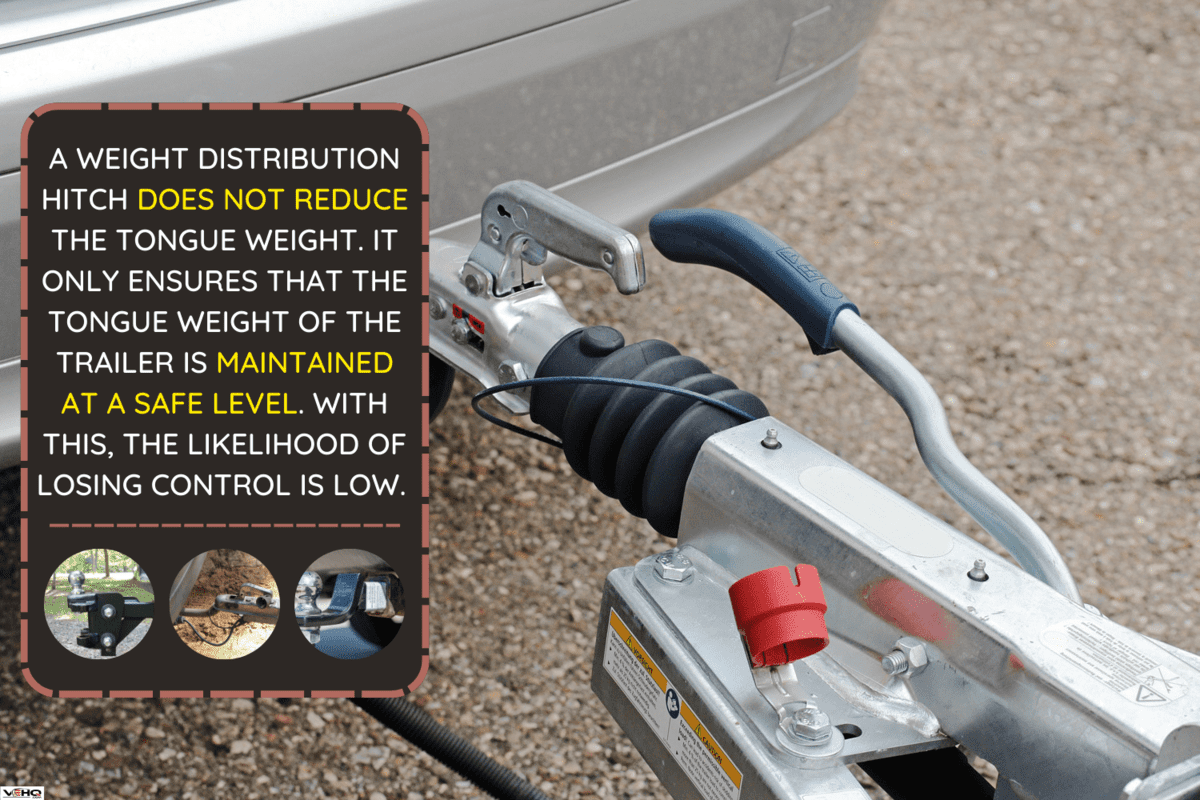
Does A Weight Distribution Hitch Reduce Tongue Weight?
The correct distribution of weight is one of the crucial factors to consider when towing. With the use of a weight distribution hitch, the weight of the hitch can be more evenly shared.
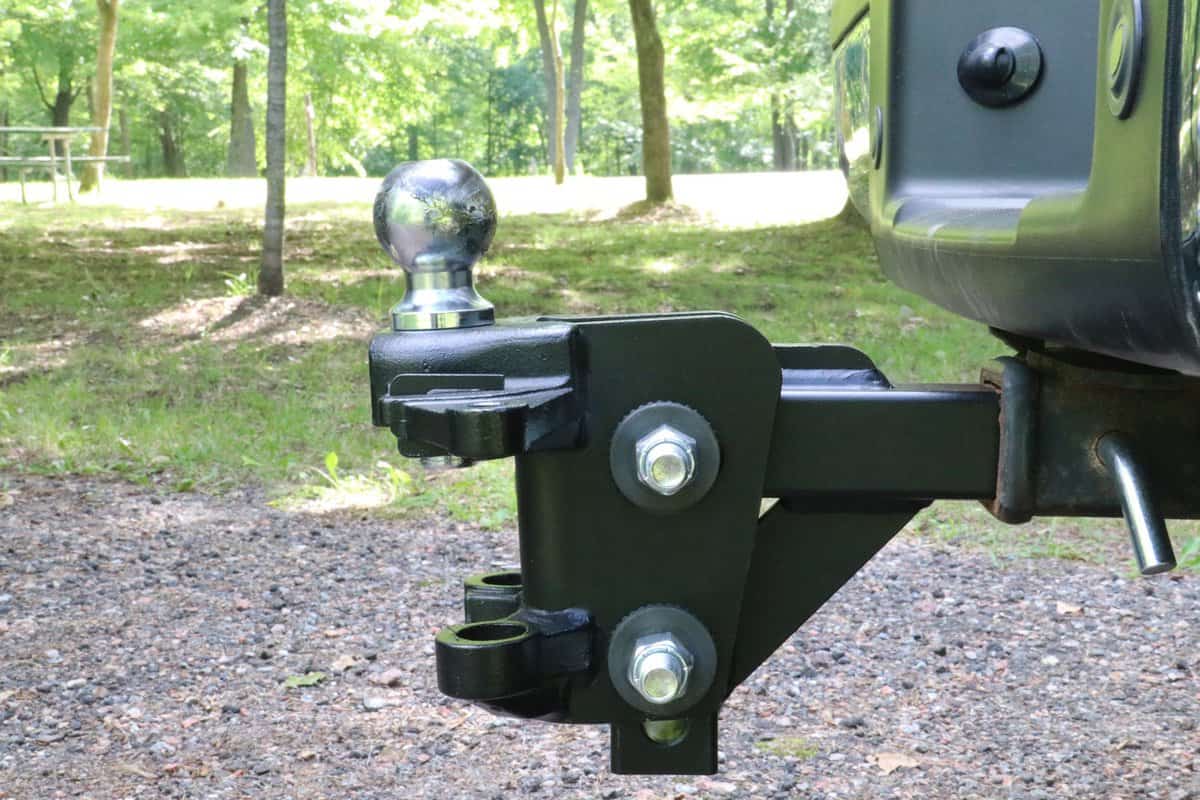
When the weight is shared equally across the trailer, there will be less chance of the trailer swaying, resulting in a smoother and much safer ride.
However, there will be no change to the tongue weight of the trailer as a result of a weight distribution system. The system simply maximizes the capacity of both the vehicle and the hitches.
Due to this, you won't be able to tow more with a weight distribution hitch. Instead, it makes it possible for the hitch to be used to its full extent. Avoid exceeding your towing limit for your safety and that of other motorists.
Click here to see this weight distribution hitch on Amazon.
What Are The Benefits Of A Weight Distribution Hitch?
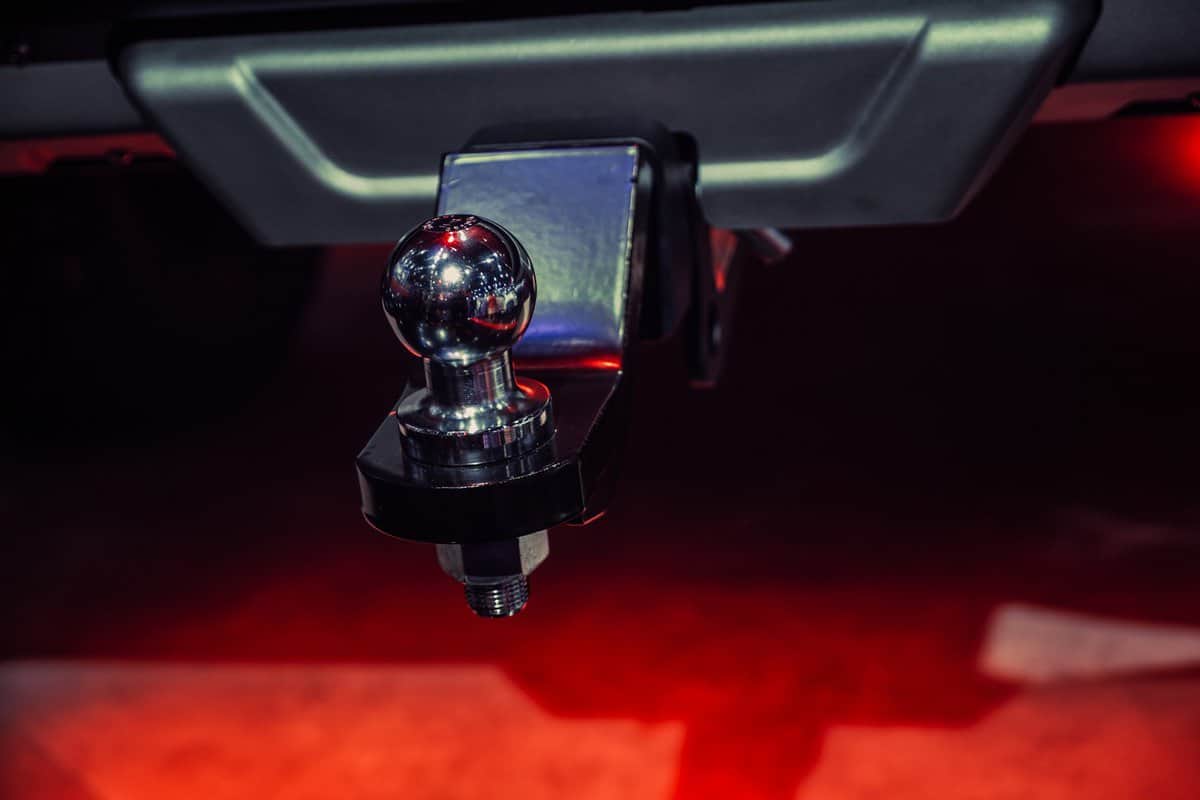
The pros of weight distribution hitch include:
Balance
It is possible for a trailer to sink down the roadway if there is an excessive amount of tongue weight (TW), which creates an unsafe driving condition. The weight distribution hitch moves the weight to the back of the car.
As a result, the trailer becomes more "balanced" and secure while driving because there is more weight distributed throughout the vehicle and less weight across the hitch.
Safe Steering And Braking Abilities
The towed load will be distributed more safely and securely with the help of a weight distribution hitch, as the name implies. As a result, the whole vehicle, not just the rear, will be responsible for guiding and regulating the trailer's movement. So, it aids the steering and braking ability.
If there is excessive weight on the tongue, the brakes on your car may have difficulty gaining traction. This can cause the rear tires to push in on bends or curves, which can cause damage to the brakes.
Imagine yourself pushing a wheelbarrow while bent over and close to the ground; your arms and back would be performing the majority of the work, and your body would get tired quickly.
However, if you pull the wheelbarrow up above your waist, the weight is distributed more evenly, and your entire body can then work to push the load. This enables you to withstand the weight of the load, push it farther, have greater control over your steering, and stop anytime you wish to.
Protects Against Long-Term Wear And Tear
Tires and the body of a vehicle are protected from damage when the weights of the vehicle and trailer are balanced. Uneven weight produces inherently uneven damage to both the tires and the body of the vehicle, which can lead to early wear and tear of other components.
If you want to know the amount of weight that you are transporting, make it a priority to stop by the weigh station in your area and get the vehicle weighed as soon as possible.
What Happens If Tongue Weight Is Very Heavy?
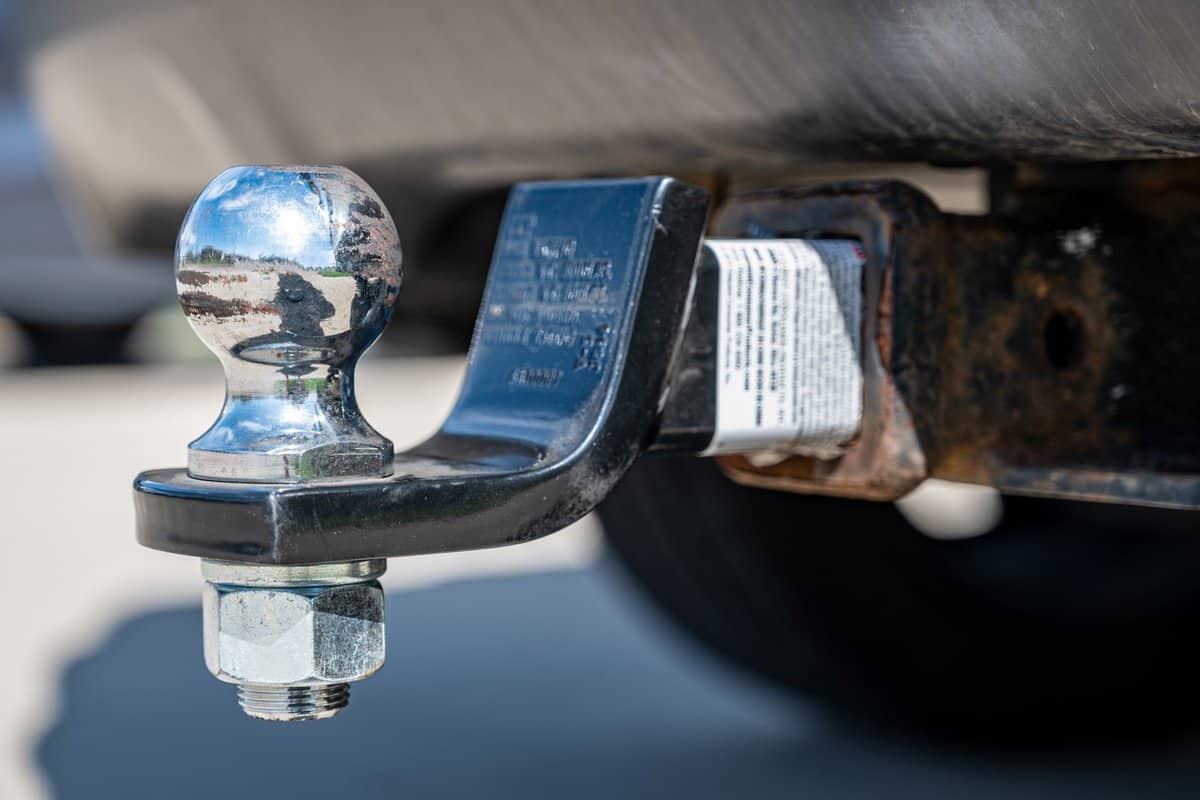
The following happens as a result of heavy tongue weight:
Handling Is Affected
If the tongue is carrying too much weight, the steering of the towing vehicle will be affected. A trailer tongue weight that is excessively heavy causes the trailer to move differently along the road and will also affect how it comes to a stop when it reaches its destination.
Excessive Stress On The Vehicle
When the tongue weight is too heavy, the vehicle that is being used to tow can experience stress on its frame, suspension, tires, drivetrain, and brakes.
It is possible for the rear tires of the towing vehicle to become overloaded as a result of the excess weight that is transferred through the hitch. This causes the vehicle's rear end to move around.
Braking Is Affected
A tongue weight that is excessively heavy may also have a severe impact on the way the vehicle brakes, particularly while turning corners and navigating curves.
This is because the front of the towing vehicle, which reduces the weight that is supported by the front tires and, as a result, decreases the effectiveness of the tires' ability to brake.
So, the car's stopping distance gets affected to the point where the driver cannot come to a complete stop after applying pressure to the brake pedal.
All these can be avoided by properly distributing the weight of the trailer. In such a scenario, the load that is carried would need to be altered so that a greater portion of the burden is transferred toward the back, behind the trailer's axle.
Does Hitch Height Affect Tongue Weight?
Yes, the tongue weight is considerably affected by the height of the hitch. If your hitch height is too much, an excessive amount of weight will be transferred to the axles of the trailer.
However, if it is set too low, it places additional strain on the towing vehicle. As a result, tow vehicles and trailers should always be positioned so that they are level when towed.
Where Do You Place The Most Weight On A Trailer?
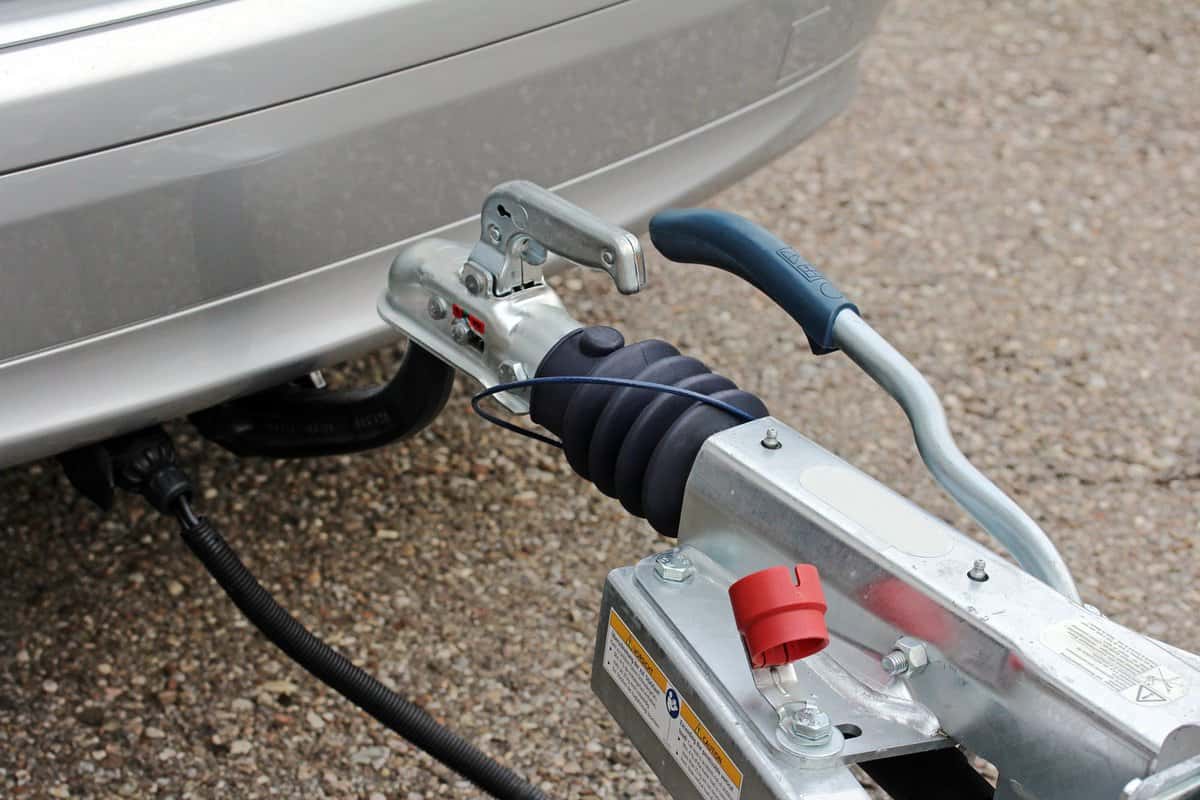
It is recommended that most of the trailer's weight be positioned toward the front and uniformly distributed from side to side in order to avoid instability and sway. The tongue weight of the trailer is determined by the distribution of the load from the front to the back.
The correct distribution of weight from the front to the back of the trailer can be determined by measuring the weight of the trailer's tongue. A trailer's tongue weight should be between 10 and 15 percent of the total weight of the trailer.
The 60/40 rule is a good rule of thumb that can be used to help achieve the correct tongue weight. This rule states that you should place 60 percent of the weight ahead of the axle.
This will result in trailer loading, which is more advantageous. Nevertheless, you should always measure and verify your real tongue weight to ensure that you have a good tongue weight percentage and do not exceed the vehicle's ratings.
Does Weight Distribution Hitch Reduce Turning Radius?
In most circumstances, if you use a weight distribution system, you will have approximately the same amount of turning ability as when it is not used.
However, when utilizing a system with limits, the difference is hardly noticeable. This system may have just a slightly wider base, but you can still make U-turns whenever they are required.
Why Can't You Back Up With A Weight Distribution Hitch?
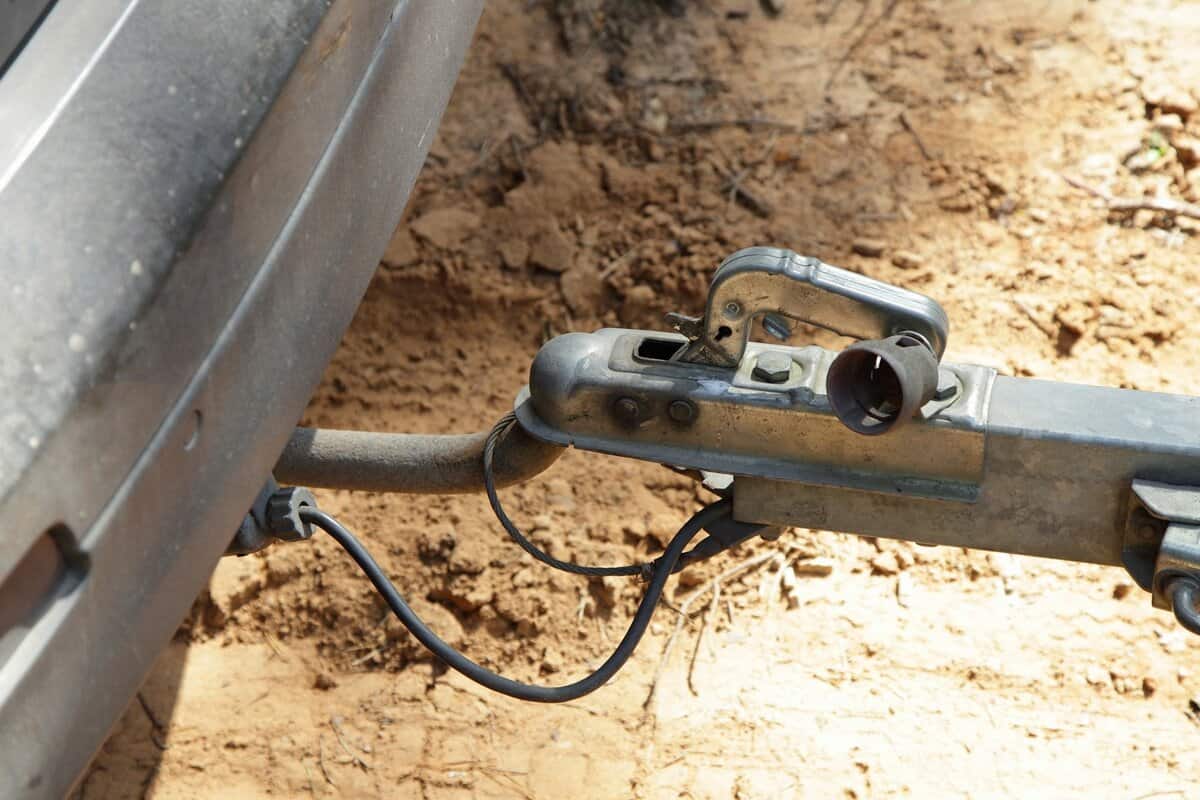
The main reason why it is often recommended not to back up with a distribution hitch is that doing so could potentially cause damage to the system.
Additionally, some weight distribution systems come with restrictions and they do not allow the vehicle to back up. However, if you are backing up in a straight line, everything should be alright.
There are hitches that do not have any backing restrictions, but the majority of hitches require the spring bars and sway control system to be loosened or removed before making turns while the vehicle is in reverse.
Do You Need A Weight Distribution Hitch With A 3/4-Ton Truck?
The use of a weight distribution hitch is not typically specified as necessary by the manufacturer when towing with a 3/4-ton or bigger truck, although you can still use it. In general, a weight distribution hitch is required if the weight of what you are towing exceeds the weight of your vehicle by more than half.
To Wrap Up
Exceeding your car's tongue weight rating can be dangerous and make towing stressful. Towing is easier and safer when a trailer's weight is evenly distributed. However, a weight distribution hitch has other functions, not the reduction of tongue weight.
If you enjoyed reading this post, here are similar articles you may like:
How To Reduce 5th Wheel Hitch Weight
Does My Truck Have A Tow Package [Here's How To Tell]
Towing Capacity and Trailer Weight – What RV Owners Need to Know

